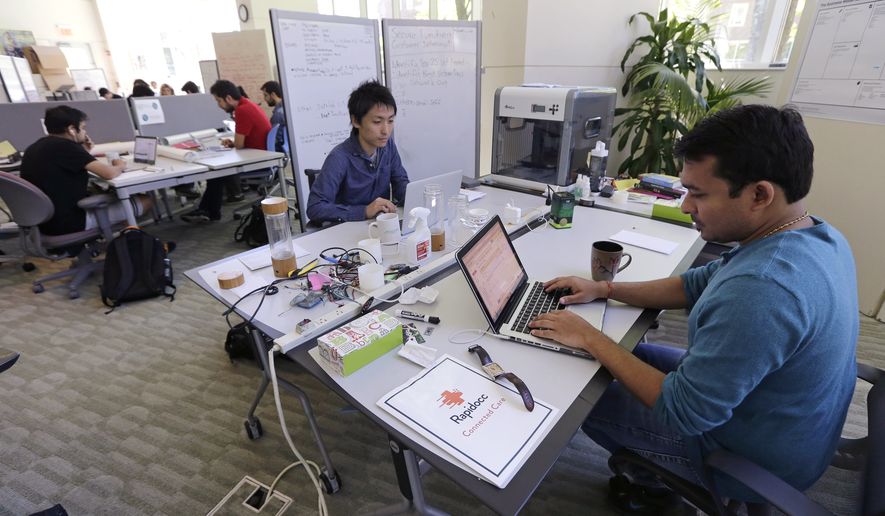Homeland Security proposed a new regulation Friday that would give the government a chance to make sure more of those applying for a key guest-worker program are the highest-skilled workers the system was designed for.
The H-1B program is supposed to allow workers of high merit a chance to fill jobs in the U.S., but critics say it’s become a pipeline for siphoning cheap computer programmers from Asia into the U.S., where they often replace American workers.
Currently the U.S. allows 20,000 new H-1B visas a year to workers with a master’s degree or higher from an American school, and another 65,000 workers in a general category. When there’s a flood of applicants, the government holds a lottery to decide who gets the visas.
Under the new proposal from U.S. Citizenship and Immigration Services, the general category visas would be filled first, meaning that workers with higher degrees would first compete for the general slots. Only after those 65,000 visas are used would the 20,000 foreigners who earned higher degrees at U.S. schools be filled.
Changing the order means more of the general category of H-1B visas will go to workers with the high-level degrees, which the Trump administration says will push the program back toward its original goals.
USCIS predicted some 5,000 more workers with master’s degrees or higher would be picked under the new system.
“Those seeking to obtain immigration benefits and work in the U.S. should succeed on merits of skill, ability, education, and potential contributions to American society, not a random and uncertain process,” said Michael Bars, a spokesman for USCIS.
H-1B visas are highly prized by foreign workers. They’re good for three years, can be renewed once for another three years, and are considered a steppingstone to earning a green card signifying full legal permanent residency.
President Trump, in one of his early executive orders, had directed USCIS to review its guest-worker programs to make sure they were aimed at protecting Americans first.
Homeland Security Secretary Kirstjen Nielsen, in submitting the new proposal to the Federal Register, said the plans will save money for both the government and for companies petitioning for guest workers.
The rules must go through a review and comment period before they’re finalized.
The government said it hopes to have the new system in place for 2020, but could delay if it needs to.
• Stephen Dinan can be reached at sdinan@washingtontimes.com.




Please read our comment policy before commenting.